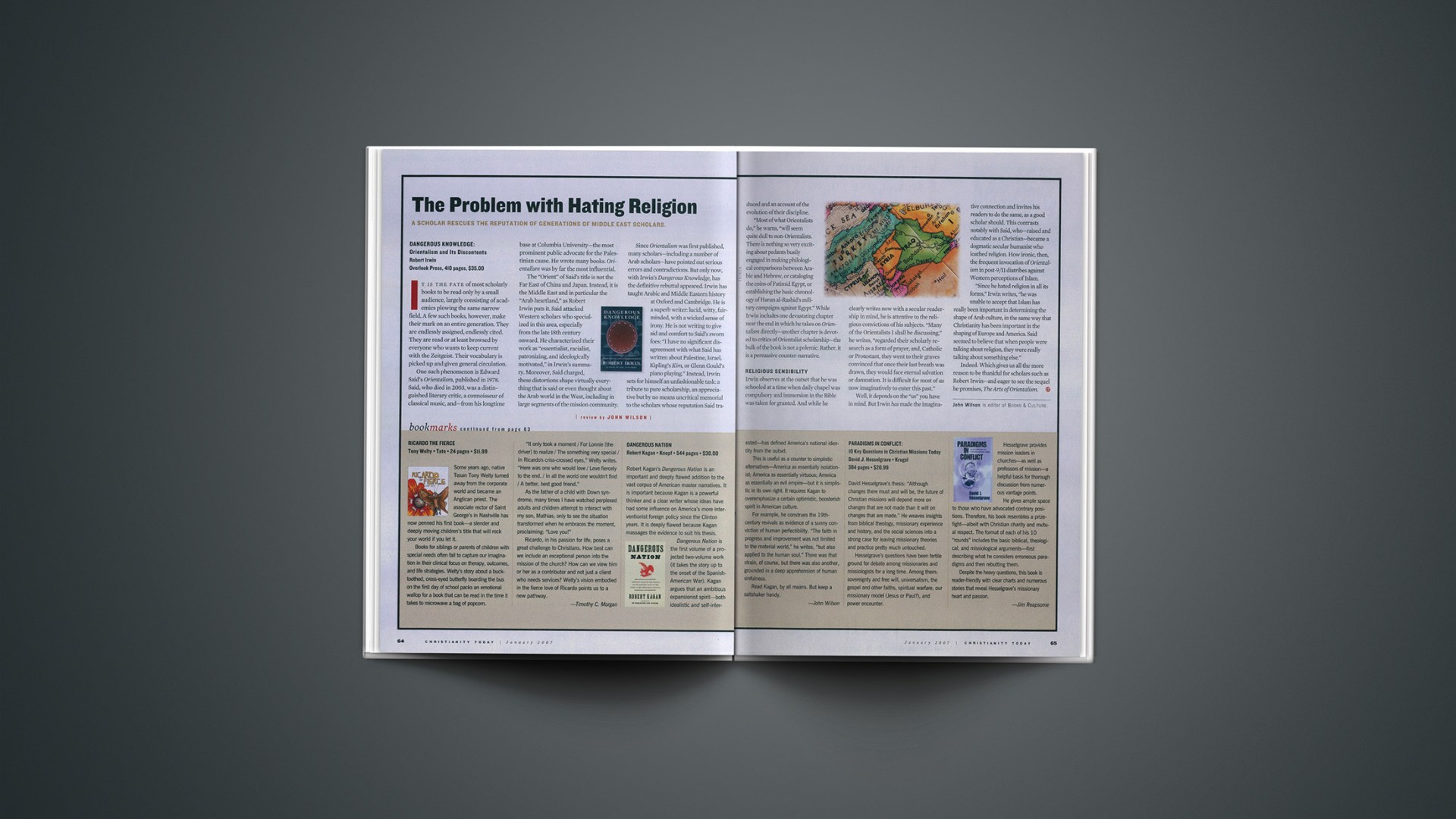Robert Kagan’s Dangerous Nation is an important and deeply flawed addition to the vast corpus of American master narratives. It is important because Kagan is a powerful thinker and a clear writer whose ideas have had some influence on America’s more interventionist foreign policy since the Clinton years. It is deeply flawed because Kagan massages the evidence to suit his thesis.
Dangerous Nation is the first volume of a projected two-volume work (it takes the story up to the onset of the Spanish-American War). Kagan argues that an ambitious expansionist spirit—both idealistic and self-interested—has defined America’s national identity from the outset.
This is useful as a counter to simplistic alternatives—America as essentially isolationist; America as essentially virtuous; America as essentially an evil empire—but it is simplistic in its own right. It requires Kagan to overemphasize a certain optimistic, boosterish spirit in American culture.
For example, he construes the 19th-century revivals as evidence of a sunny conviction of human perfectibility. “The faith in progress and improvement was not limited to the material world,” he writes, “but also applied to the human soul.” There was that strain, of course, but there was also another, grounded in a deep apprehension of human sinfulness.
Read Kagan, by all means. But keep a saltshaker handy.
Copyright © 2007 Christianity Today. Click for reprint information.
Related Elsewhere:
Dangerous Nation is available from Amazon.com and other retailers.
Knopf’s page on Robert Kagan has an excerpt from Dangerous Nation.










